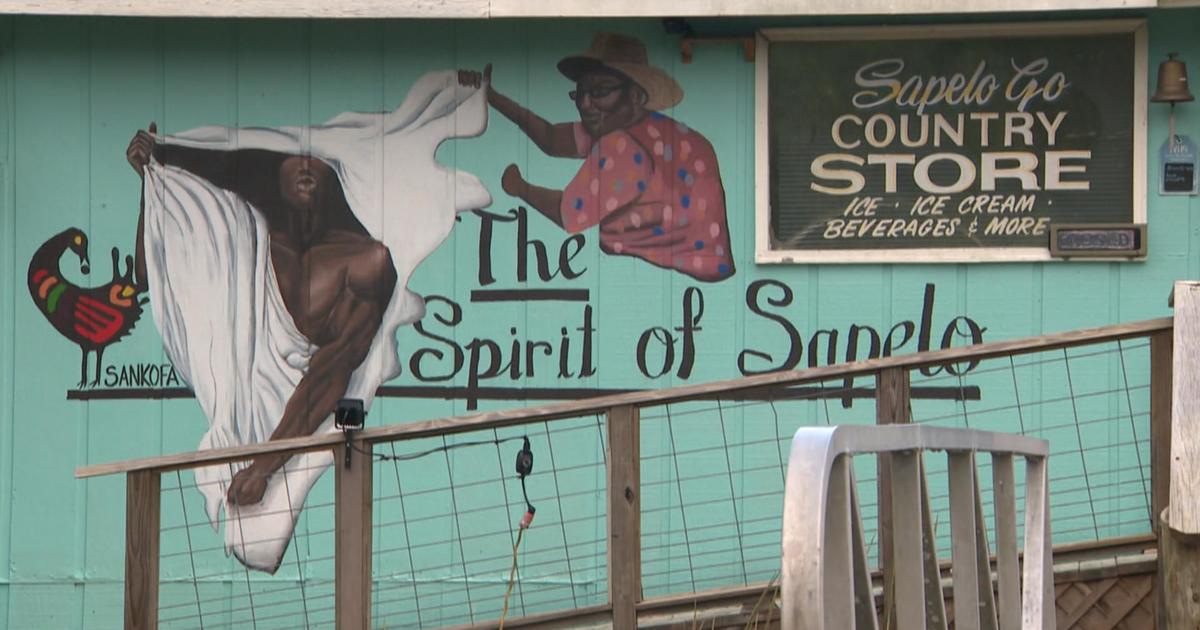Voting rules, marijuana, gun rights: How state ballot initiatives fared in the midterm elections
Washington — Beyond casting ballots for federal and state candidates, voters in most states also weighed in on more than 100 ballot measures in the 2022 midterm elections, touching on hot-button issues including voting rules, immigration, marijuana legalization and gun rights.
Here is a look at the proposals on the ballot around the country and how they fared Tuesday. Those marked "approved" are projected to be approved by CBS News, and those marked "rejected" are projected to be voted down. Those noting that "yes" or "no" is leading are based off unofficial vote totals reported by state elections offices as of Wednesday, and could change. (Results for Massachusetts' ballot question was not available.)
Voting rules
Connecticut: Approved
Voters approved the Allow for Early Voting Amendment, which changes the state constitution to permit the General Assembly to provide for in-person early voting.
Most states have in-person early voting, but Connecticut joined Alabama, Mississippi and New Hampshire among the small handful without it.
Michigan: Approved
Michigan's Proposal 2 amends the state constitution to add numerous provisions regarding elections:
Recognize the fundamental right to vote without harassing conduct;
Require military or overseas ballots to be counted if postmarked by Election Day;
Provide voter right to verify identity with photo ID or signed statement;
Provide voter right to single application to vote absentee in all elections;
Require state-funded absentee-ballot drop boxes and postage for absentee applications and ballots;
Provide that only election officials can conduct post-election audits;
Require nine days of in-person early voting;
Allow donations to fund elections;
Require canvass boards certify election result based only on the official record
Nevada: "Yes" leads
Question 3 is a proposal to amend the Nevada Constitution to allow for open primaries and ranked-choice voting. If passed, the measure would return to the general election ballot for 2024 and then, if approved again, would amend the state constitution to change the elections rules.
The state legislature also has until July 1, 2025, to adopt implementing legislation, and the changes would take effect for the 2026 election cycle.
Arizona: Leaning "no"
The state's Proposition 309 would tighten voting rules to require voters to write their birth date, state-issued identification number, or the last four digits of their Social Security number, as well as a signature, on an early ballot affidavit. It also requires certain photo ID to vote in-person, doing away with the ability to vote in-person without photo ID when a voter shows two other identifying documents.
Nebraska: Approved
Called Initiative Measure 432, the measure before Nebraska voters asked whether they want to amend the state constitution to require a valid photo ID in order to vote.
Ohio: Approved
Issue 2 amends the state constitution to prohibit local governments from allowing non-citizens to vote in local elections if they aren't qualified to vote in state elections.
Alabama: "Yes" leads
If the state's Amendment 4 is OK'ed by voters, the state constitution would be amended to require any bill approved by the state legislature that changes general election rules to be implemented at least six months before the election.
Marijuana legalization and psychedelics
In five states, voters decided whether to legalize recreational marijuana: Maryland, Arkansas, Missouri, North Dakota and South Dakota.
Maryland and Missouri approved their proposals, while Arkansas, North Dakota and South Dakota rejected their measures.
In Colorado, meanwhile, votes in favor of Proposition 122 lead. The measure would amend existing state law to allow the "supervised use" of psychedelic mushrooms by people over the age of 21 by 2024 and decriminalize the personal possession, growing and use of five natural psychedelic substances. The ballot measure would also allow the state to expand the types of substances that can be used in licensed facilities beginning in 2026 to include more plant-based psychedelic substances.
Guns
Iowa: Approved
Iowa voters moved to expand gun rights in their state with approval of Amendment 1. The measure adds language to the state constitution stating: "the right of the people to keep and bear arms shall not be infringed."
The proposal also requires all gun restrictions to be subject to strict scrutiny, the standard applied to laws by courts to determine whether they are constitutional.
Oregon: "Yes" leads
Contrary to Iowa's proposal, which would strengthen gun rights, Oregon's Measure 114 would impose new firearms restrictions, prohibiting magazines with more than 10 rounds. The proposal also requires prospective gun buyers to complete a safety course and pass a background check before they are granted a permit to purchase a firearm.
Minimum wage
Nevada: "Yes" leads
The state's Question 2 seeks to raise the minimum wage to $12 per hour, beginning July 1, 2024.
Nebraska: Approved
Voters in Nebraska weighed in on Initiative 433 and gave the green-light to an increase to the state minimum wage from $9 an hour to $10.50 per hour, beginning Jan. 1. In 2024, the minimum wage would grow to $12 an hour, followed by an hourly wage of $13.50 in 2025, and $15 an hour in 2026.
Immigration
Arizona: "Yes" leads
Proposition 308 asks Arizona voters whether they would allow any Arizona student, regardless of immigration status, to be eligible for in-state tuition and financial aid at state universities and community colleges if they graduated from any public or private high school, or home-school equivalent, in the state.
If approved, the ballot measure would undo Proposition 300, a ballot initiative approved by Arizona voters in 2006 that prohibits students who are in the country unlawfully from paying in-state tuition at Arizona universities or community colleges.
Massachusetts
On the ballot in Massachusetts is Question 4, which asks voters whether they want to keep or repeal a law approved by the state legislature in May that allows undocumented immigrants living in the state to obtain a driver's license — not a REAL ID — or learner's permit if they meet the qualifications to drive.
The bill was approved by the state House and Senate, but vetoed by Gov. Charlie Baker, a Republican. State lawmakers in both chambers then voted in June to override his veto.
In September, the secretary of the commonwealth's office announced it certified that a referendum petition for a ballot question on repealing the law had received enough signatures to qualify for the November ballot.





